The Last of Us 2's best moments are its quiet ones
Marketed as a game about hate, there is a lot of love to be found in The Last of Us 2
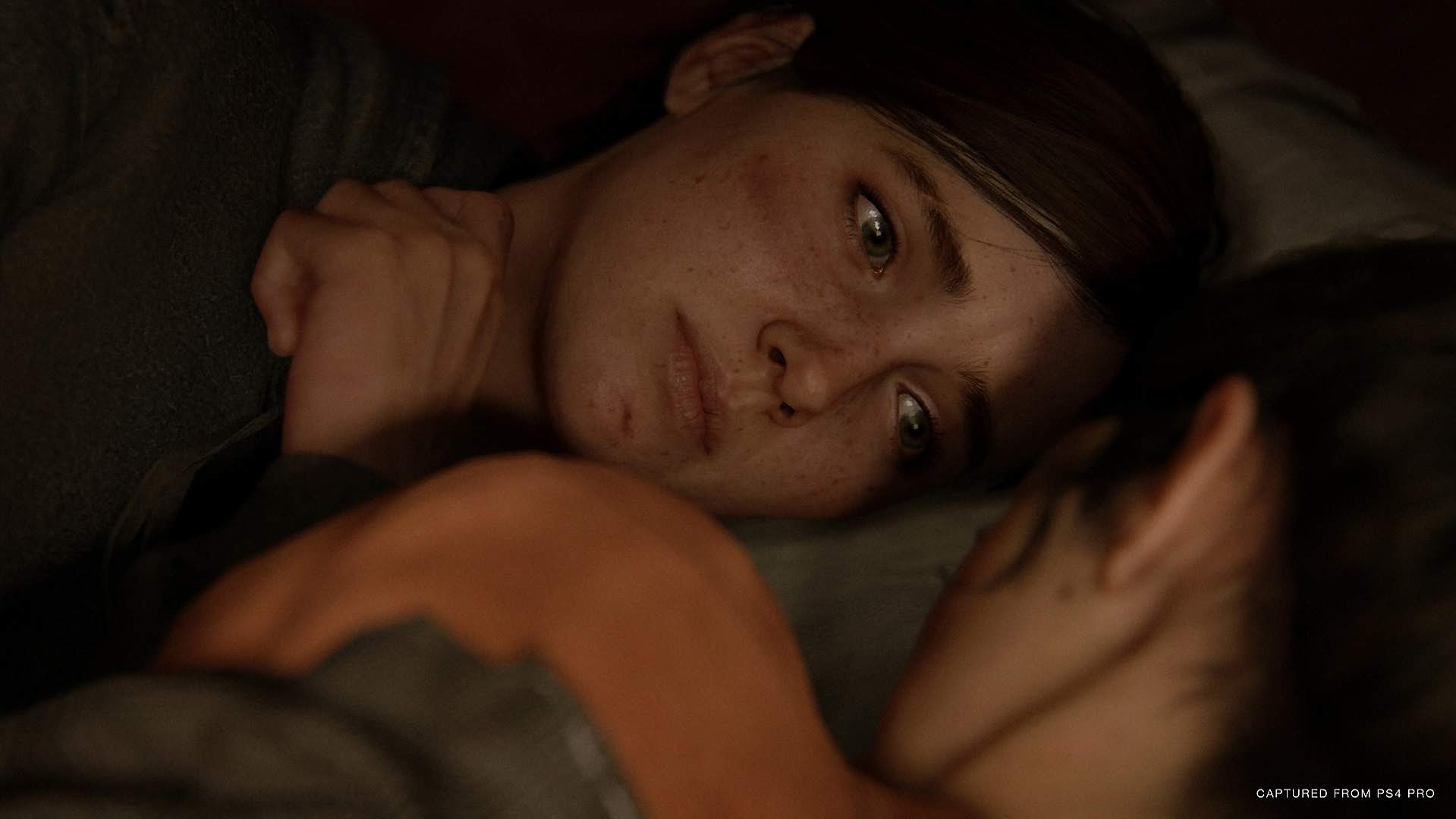
The Last of Us 2 is a game that deals with many heavy topics, each of which has conveyed a lot of complicated feelings for me and many other players. Love, loss, the cycle of violence, PTSD and survivors' guilt being just a handful of issues discussed, the game manages to tell an interesting, yet intricate, story through engaging gameplay and vivid cutscenes that amassed emotional responses from those who played. However, throughout my first playthrough, I personally found the game's peaceful moments to be the most powerful.
I personally found the game's peaceful moments to be the most powerful
Marketed as a game about hate, there is a lot of love to be found in The Last of Us 2. The sequences I found to be most effective are the ones where the characters are carving out some reflective, quiet time. One memorable section that left an impression takes place near the beginning of the game, where Ellie and Dina are exploring the open lush environment of Seattle. The entire area is freely accessible to the player, allowing you to navigate to whichever area of the map you want, and for the time that you're there, it feels quite peaceful. Riding around on Ellie's horse with Dina while engaging in conversations that gave us more backstory on their relationship effortlessly built up the connection that I was already feeling towards the two.
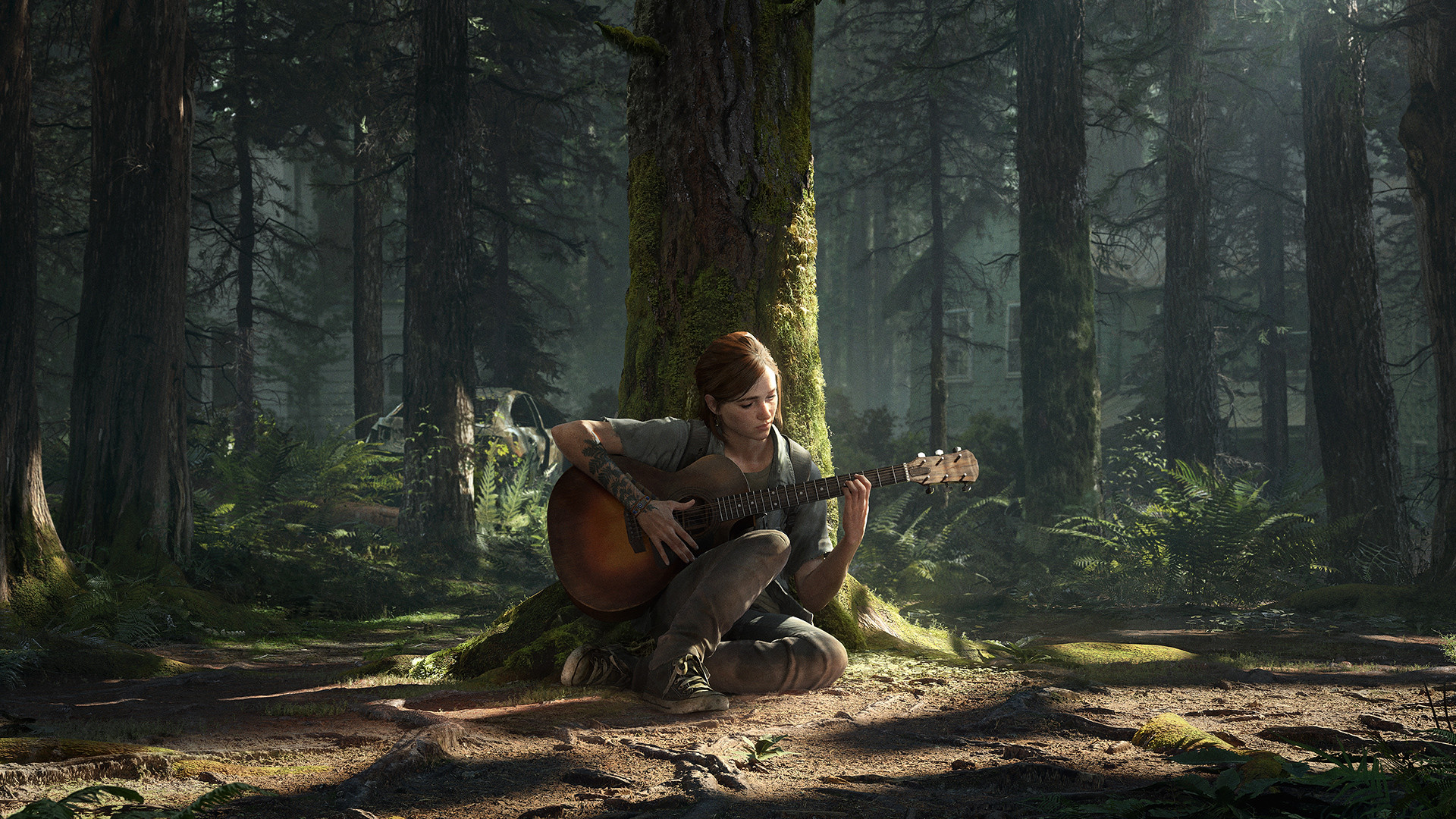
Take on me
Soon, the player can come across a music store that can be explored, which features a particularly moving cutscene. Ellie finds a guitar and decides to play the song 'Take on Me' by a-ha. The scene was so emotionally compelling that I couldn't help but tear up as Dina watched her girlfriend sing and strum the strings of the instrument - the choice of song, the character's facial expressions, Ashley Johnson's voice conveying such sentiment, I left that scene feeling hopeful of the game's direction. Quite often afterward, I kept wondering when the next quiet moment would come, worried that that scene was a one-off. I was relieved to find out there were many more.
Due to Halley Gross and Neil Druckmann's nuanced writing, the game does a really great job of exploring the dichotomy of Ellie and Abby. Through flashbacks, we're able to see instances where both women were at their happiest, building more of their backstory and grounding them as believable young women. For instance, Ellie's birthday surprise was an unforgettable sequence that I think about all the time. It was a comforting change of pace, seeing two characters that I care for simply enjoying themselves, seeing Joel being a dad for the first time and the two doing the most mundane thing of telling dumb jokes about dinosaurs. In particular, the space capsule cutscene where Joel gives Ellie the Apollo 11 tape. She listens in awe and it's a beautiful, unspeakable moment that brought me to tears. For a short time, I was able to forget the reason why I was on this brutal journey in the first place. I purposefully took my time wandering around being careful not to miss a single dialogue prompt or optional interaction. I didn't want the memory to end and I was saddened when it did.
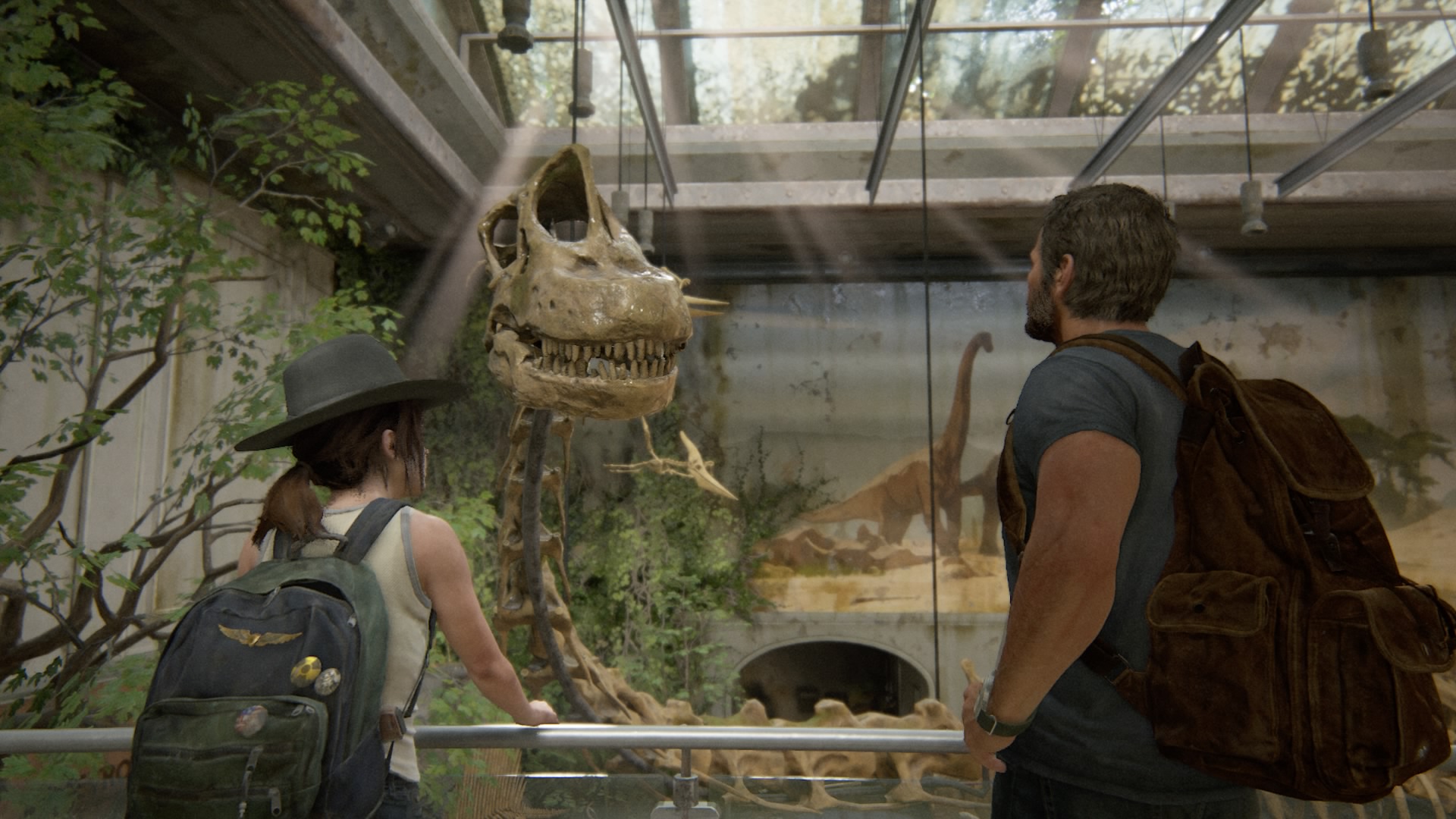
Trauma and love
Moments like these made me feel extremely connected to the characters and story and gave me some hope to hold onto before being thrust back into reality. Thankfully, this game is filled with these beautifully touching moments and I wonder if I would've been able to get through the rest without them. The narrative continuously drives the comparison between Ellie and Abby's personal experiences - they are both survivors who have experienced trauma, but they also carry a lot of love for those around them.
Just like Ellie and Joel's museum trip, there's a similar flashback with younger Abby and Owen at the Seattle aquarium. This is where the game lifts the curtain and presents Abby in a new light. Playing as Abby, the pair explore the setting together, flirting and making fun of one another, it showed a sweeter side to the tough character's we'd been presented with earlier. I've tried to imagine what the game would be like had Abby's past not been explored and concluded that I wouldn't care about her as much. Throughout the first half of the game, we're constantly seeing Abby through this dark lens and it made me believe that she was irredeemable, and I was on board with Ellie's quest for justice. Even so, exploring Abby's past from her perspective and the continued growth of her character made me understand her on a human level, she wasn't just a villain archetype anymore.
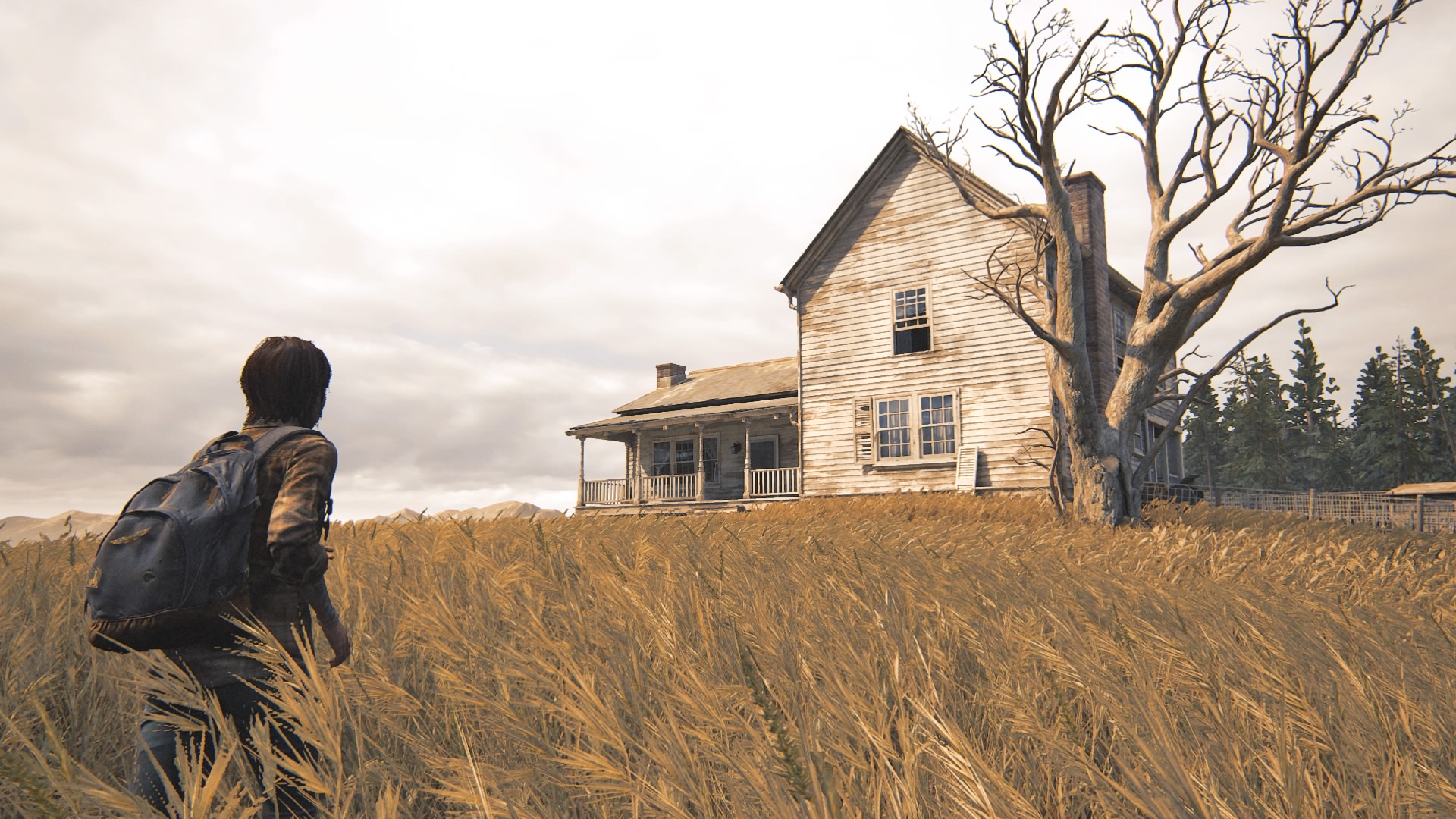
Life on the farm
The more I played, the more I could feel the sense of dread building up after each story beat, and my mind would race thinking what could possibly come next. And then the theatre sequence occurred. It was gut-wrenching to play through and by the end, I was left shaken by how bloody and chaotic it was. Mind still scrambled, the game resumes and we're back with Ellie, this time with shorter hair and at an isolated farmhouse. The sound of a crying baby can be heard and every dark feeling I had minutes beforehand was gone. Picking up baby JJ from his crib, walking down the staircase to find a healthy Dina, dancing with her in the kitchen - I had the biggest smile on my face. Prior to having played through such an emotionally difficult scene, the change of pace was welcoming. The farmhouse sequence completely caught me off guard that I was sure that what I was playing couldn't be real, that it was a dream sequence of some sort- no way could this be how Ellie's journey ends. It was nice to imagine for the short time, sitting on the tractor with JJ, gazing into the breath-taking sunset, and taking a step back from the violence of The Last of Us 2. When the story is at its peak, there comes a point where it slows down and allows the player to breathe, to truly take in what they're playing without the pressure of proceeding. That's where it succeeds the most.
Sign up to the GamesRadar+ Newsletter
Weekly digests, tales from the communities you love, and more
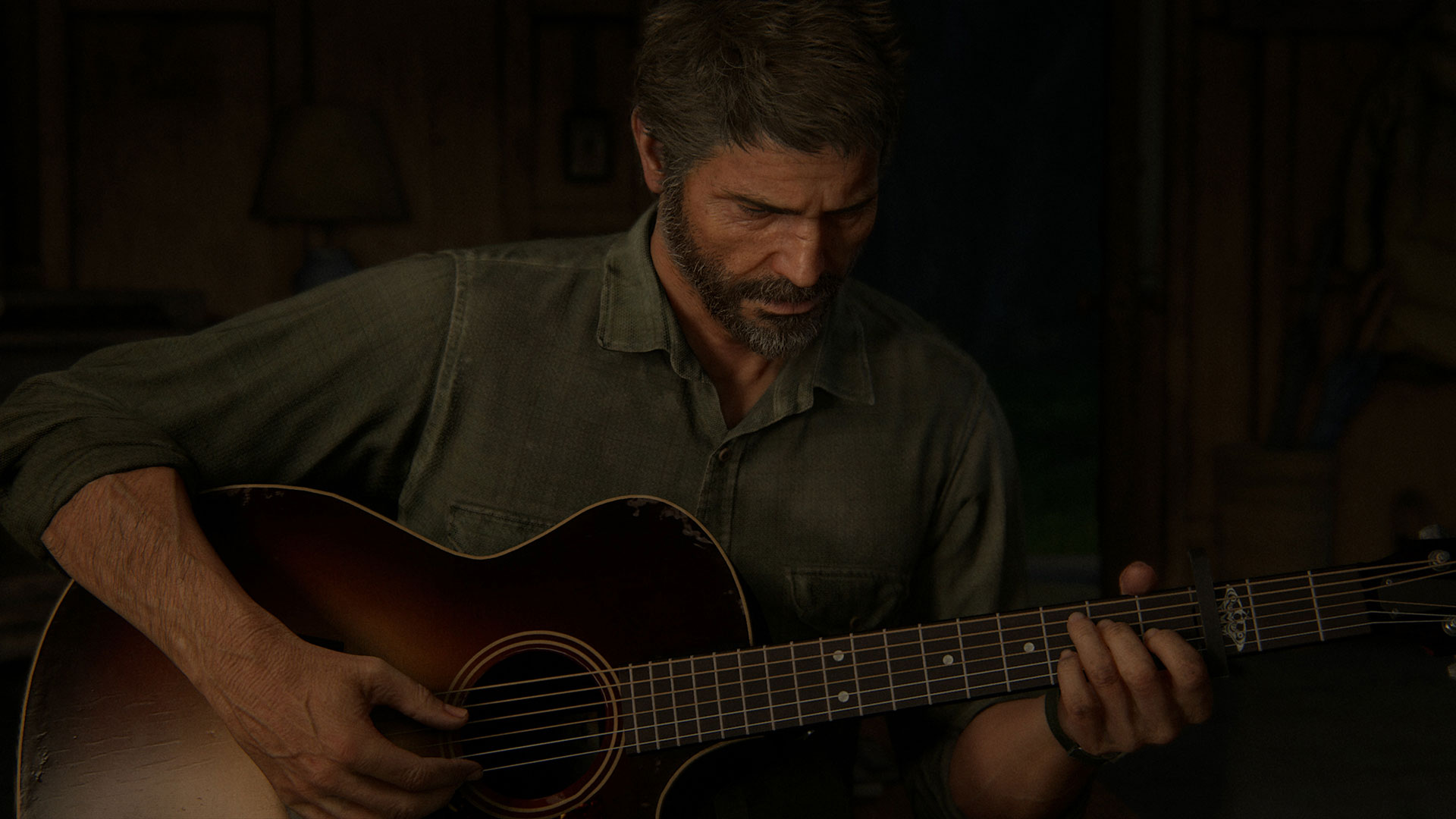
As a post-apocalyptic game, naturally, it's important to establish a harsh, believable world with imminent danger, but that doesn't mean that such a world must be completely lost of its humanity. Without sequences like these, I don't think The Last of Us 2 would've had the right balance of emotion and the narrative would have felt empty if its only substance was convoluted with horror and despair. Comparing the rest of the game to the more endearing moments, a deeper impact was made to the overall and by the end of the game it's unknown where Ellie is headed; if she's starting a new life or if she's intent on going back to Jackson to reunite with Dina. Nevertheless, I'd like to believe the latter. As a result of the way the game uses its underlying themes of love and forgiveness by shining a light through the darker cracks of the story, it makes me hopeful of Ellie's ending.
Demi is a freelance video games journalist with a particular love for Final Fantasy. She's written for GamesRadar, NME, TheGamer, and Gamespot in recent years.


